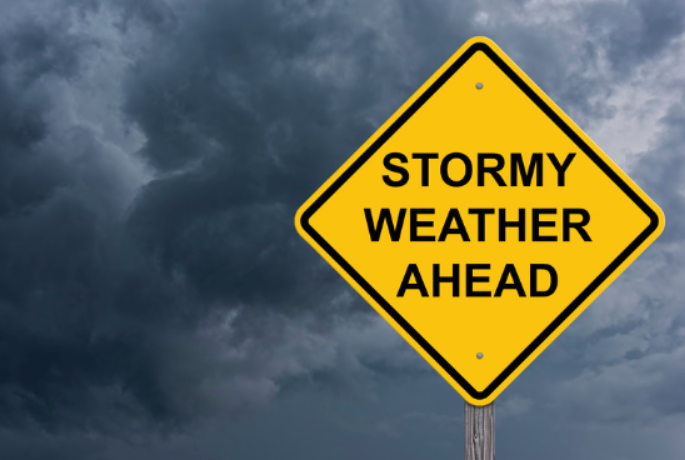
Weathering the Storm: Tips for Travel During the Tropical Storm Season
The 2024 Atlantic hurricane season runs from June 1 to November 30. When planning travel during the tropical storm season, you must be prepared for unexpected weather conditions that could impact your trip. Whether traveling by car, plane, or RV, preparation can help ensure a fun journey.
Car Travel During the Tropical Storm Season
Embarking on a car journey during the tropical storm season demands meticulous preparation to mitigate risks and ensure safety. The weather’s unpredictability during this period means travelers must be proactive in planning and ready to adapt as conditions change.
Firstly, keeping abreast of the latest weather updates is crucial. Utilize reliable weather-tracking apps and websites to monitor forecasts along your intended route and destination. This vigilance allows you to adjust your travel plans, including postponing your trip, to avoid the worst of the storm.
Ensuring your vehicle is in peak condition before setting off can significantly reduce the chances of encountering problems during adverse weather. An inspection by a qualified mechanic should cover essential aspects such as tire tread depth and pressure, brake efficiency, and the condition of your windshield wipers. These checks are vital, as wet and windy conditions can severely impact your car’s performance and visibility.
Equally important is preparing an emergency kit tailored for tropical storm conditions. This kit should include, but not be limited to:
- Ample water supplies and non-perishable food items
- Durable flashlight with extra batteries
- First aid kit
- Portable battery charger for your mobile devices
- Waterproof poncho and blankets
- Paper maps in your car can also be a lifesaver in areas where digital navigation tools might fail due to poor weather conditions.
What types of insurance should you consider when traveling during hurricane season? Insurance coverage plays a pivotal role in your preparation. Reviewing your current policy and understanding what is covered in the event of storm-related damage is advisable. Comprehensive insurance policies covering flood and storm damage offer added protection and peace of mind during travel.
Before leaving, you should review driving tips for navigating through storms. Slowing down to accommodate reduced traction on wet roads, increasing your following distance, and avoiding driving through flooded areas are vital strategies for safe travel. Being familiar with these practices can prevent accidents and ensure your safety and that of other road users.
It’s also beneficial to plan your route with potential weather-related disruptions in mind. Identifying alternative routes and safe locations to seek shelter if the storm intensifies will keep you one step ahead. Staying informed through local radio stations about real-time weather conditions and road closures can provide critical information that helps you make informed decisions while on the road.
Lastly, clear communication is essential. Make sure to let someone know about your travel plans, including your route and expected arrival time. Regularly update them on your progress, especially if you need to alter your path or encounter delays. This ensures that rescuers have a starting point to begin their search in an emergency.
Air Travel Amidst Tropical Storm Warnings
Facing the uncertainties of air travel during the tropical storm season requires a strategic approach to mitigate disruptions and stress. As storms can lead to sudden changes in flight schedules, proactive preparation, and flexible planning become your best allies.
Staying updated with the latest meteorological forecasts and airline notifications is critical. Many airlines offer real-time flight status alerts via websites, mobile apps, or text messages. Enabling these notifications ensures you receive immediate updates on any changes to your flight itinerary. This level of vigilance is especially crucial in the days leading up to your departure, as tropical storm paths can shift unexpectedly, affecting flights even in regions not directly hit by the storm.
Booking flexibility is another important consideration. When making travel arrangements, opt for refundable tickets or airlines that offer flexible rebooking policies during severe weather events. While these options might come with a higher initial cost, they provide valuable peace of mind and financial protection if your travel plans need to change last minute due to a tropical storm.
Travel insurance plays a pivotal role in your travel strategy during storm season. Select a policy that covers flight cancellations, delays, and lodging expenses incurred due to weather-related disruptions. Carefully review the terms to ensure that tropical storms and hurricanes are not listed as exclusions. Comprehensive travel insurance can alleviate the potential financial strain of unexpected travel changes and accommodations.
Preparation extends to what you pack. In anticipation of delays, include essentials in your carry-on luggage, such as medications, chargers for electronic devices, and basic toiletries. Extra clothes, snacks, and a reusable water bottle can make lengthy airport waits more comfortable. For entertainment, consider downloading movies, e-books, or podcasts to your device in advance, as Wi-Fi access may be limited or congested at airports during busy times.
For those with connecting flights, examining alternative routes and airports is wise. Major storms can affect large swathes of the coast and inland areas, potentially disrupting multiple airports simultaneously. Knowing your options beforehand allows for quicker rebooking and decision-making should your initial route become untenable.
Engage proactively with your airline if you have concerns about your upcoming flight. Airlines are often more accommodating to requests for changes or cancellations when severe weather threatens their operations. They may waive change fees or offer vouchers for future travel to affected passengers. Reaching out to your airline immediately is beneficial, as customer service lines can become overwhelmed as the storm approaches.
Lastly, consider the timing of your airport arrival. Arriving early for flights is generally advised, but this is particularly important during tropical storm season. Additional security measures, longer check-in queues, and the possibility of operational slowdowns mean that extra time at the airport can prevent last-minute rushes and missed flights.
Safe RV Travel During Hurricane Season
Navigating the highways in your home-on-wheels during hurricane season demands a proactive stance on safety and preparedness. As majestic as the freedom of RV travel can be, it also requires special attention during heightened weather activity. Here’s how you can ensure your RV journey remains memorable for the right reasons, even as the storm clouds gather.
Firstly, a thorough pre-trip inspection of your RV is non-negotiable. This inspection should go beyond the standard checks and embrace elements critical for weathering a storm. Confirm the integrity of your vehicle’s seals and windows to prevent water ingress. Inspect the tires for wear and ensure they are inflated to the correct pressure for optimal performance on wet roads. Pay attention to the importance of ensuring your vehicle’s brakes, lights, and engine are in top condition, as these factors become even more critical under storm conditions.
Equipping your RV with storm-ready gear is another essential step. High-quality, heavy-duty tie-downs can secure your RV against strong winds. At the same time, slide-out covers can protect extendable parts from damage by debris. A weather radio, powered by batteries or a hand crank, can be invaluable for receiving weather updates, especially in areas where your usual digital devices might fail to get a signal.
What should I pack in my RV emergency kit for hurricane season travel? In addition to standard emergency supplies, your RV’s kit should include items tailored for potential weather-related challenges. Waterproof covers for exterior vents and air conditioning units can prevent damage from heavy rain. Also, consider stocking sandbags to mitigate flooding around your RV if you park in a vulnerable area.
An often-overlooked aspect of hurricane season travel is the importance of planning your route with flexibility and safety in mind. Research and map out your journey, taking note of high-risk areas and identifying safe havens such as designated storm shelters or RV parks known for their robust facilities and infrastructure. Downloading apps that provide real-time weather alerts and updates on road conditions can help you make informed decisions and alter your route if necessary.
Your contingency planning should include familiarizing yourself with evacuation routes and procedures, especially when exploring new territories. Knowing when to leave is just as crucial as knowing where to go. Heed local advisories and arrive early to evacuate, as roads can become impassable and fuel scarce.
Communication remains a cornerstone of safety during your travels. Keep friends, family, or fellow travelers informed of your whereabouts and plans. In times of uncertainty, a check-in system can ensure that others are aware of your situation and can assist if your plans go awry.
If you need a place to stay while visiting the Louisiana Bayou? Book your lodging today at Southern Breeze Lodge.
